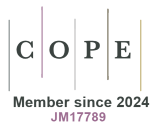Farmaci innovativi e sostenibilità
DOI:
https://doi.org/10.33393/grhta.2016.307Keywords:
Big data, Clinical data, Clinical and pharmacological research, Drug expenditure, Health expenditure, Innovative drugs, Investment, SustainabilityAbstract
The recent availability of innovative, costly cancer drugs has prompted the search for a sustainable health economics model that would allow universal access to treatment coupled with long-term viability of the national health system.
The huge R&D investment and the relatively short life of drugs, which must face not only the market entry of competitor products but also a growing trend to limit the type and number of patients in whom their use is allowed, are the main factors underlying the high unit cost of innovative drugs; this ultimately has a major impact on overall drug expenditure, especially for in-hospital treatment.
To facilitate the inclusion of innovative drugs and maximize their beneficial effect on patients, we need to increase the efficiency of the national health system overall, and be able to measure the costs that can be avoided through a coherent HTA system apt to leverage synergies at a regional level, thereby freeing wasted resources that can be better invested in this area.
Secondly, the continuous monitoring of an innovative drug throughout its life cycle, based on the correct comparative evaluation of its efficacy for each therapeutic indication, can lead to a more refined definition of drug prices. Furthermore, cost containment must in all instances include appropriate negotiation of the unit price based on the overall volume acquired.
Last but not least, a significant R&D investment in clinical research is a fundamental step that can leverage synergies between public funds and contributions from pharma companies, allowing to overcome systems based on ceilings and/or payback models that, in the current scenario, appear undoubtedly outdated.










